This blog post is also available as a video. Would you prefer to watch/listen to me tell you about how I’ve learned to enjoy doing what I’m bad at?
There are a great number of things that I’m bad at. One thing I’m bad at (but that I’m trying to get better at) is being more-accepting of the fact that there are things that I am bad at.
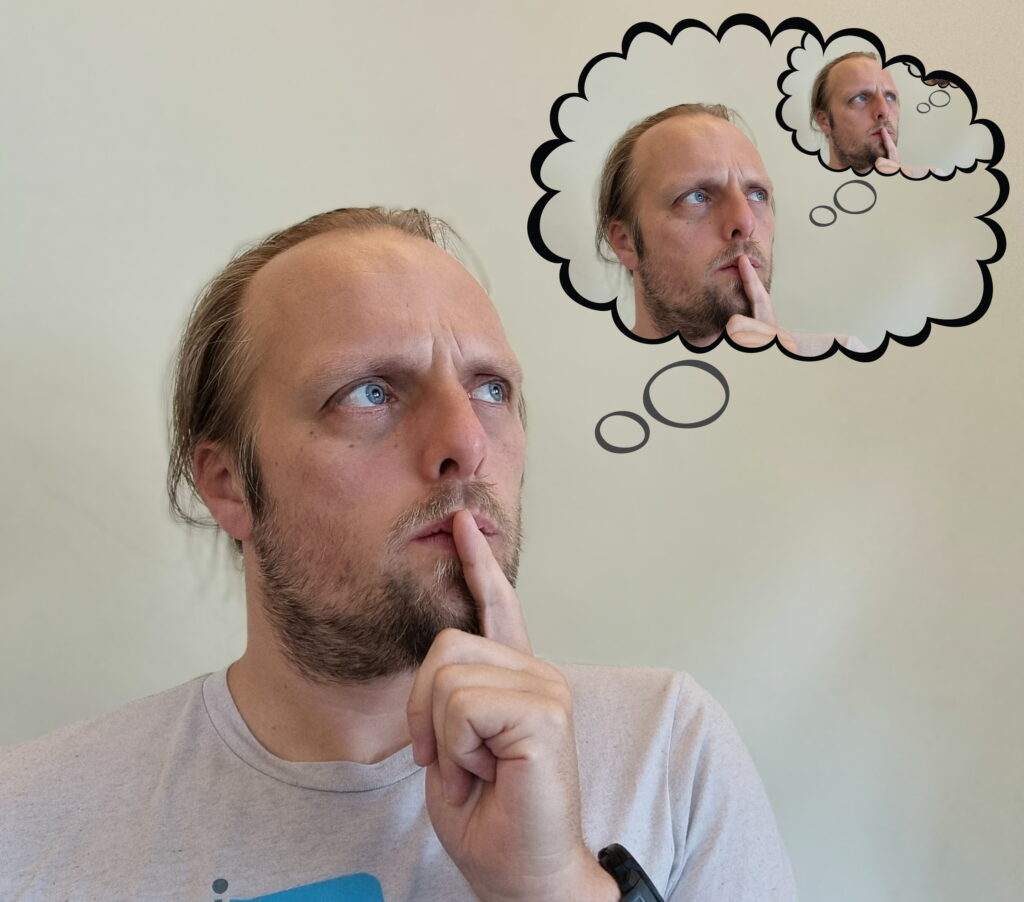
I’m pretty bad in a pub quiz. I’m bad at operating my pizza oven without destroying cookware. I’m especially bad at learning languages. I’m appallingly bad at surfing. Every time my work periodically leans in that direction I remember how bad I am at React. And I’ve repeatedly shown that I’m bad at keeping on top of blogging, to the extent that I’ve periodically declared bankruptcy on my drafts folder.
So yeah, pretty bad at things.
But hang on: that assessment isn’t entirely true.
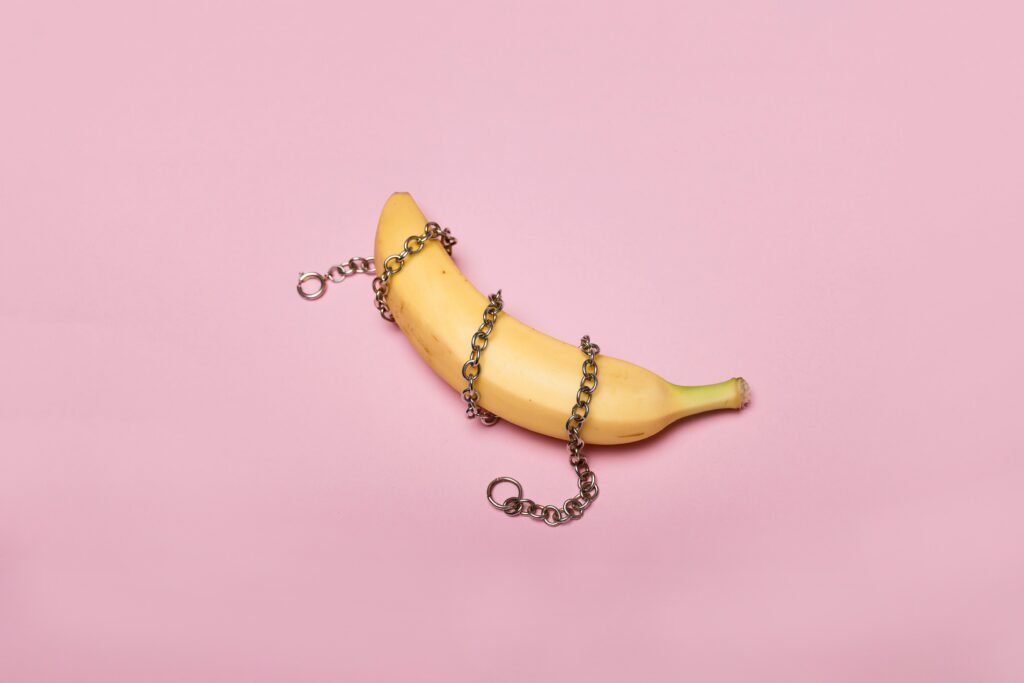
Being Bad
As a young kid, I was a smart cookie. I benefited from being an only child and getting lots of attention from a pair of clever parents, but I was also pretty bright and a quick learner with an interest in just about anything I tried. This made me appear naturally talented at a great many things, and – pushed-on by the praise of teachers, peers, and others – I discovered that I could “coast” pretty easily.
But a flair for things will only carry you so far, and a problem with not having to work hard at your education means that you don’t learn how to learn. I got bitten by this when I was in higher education, when I found that I actually had to work at getting new information to stick in my head (of course, being older makes learning harder too, as became especially obvious to me during my most-recent qualification)!
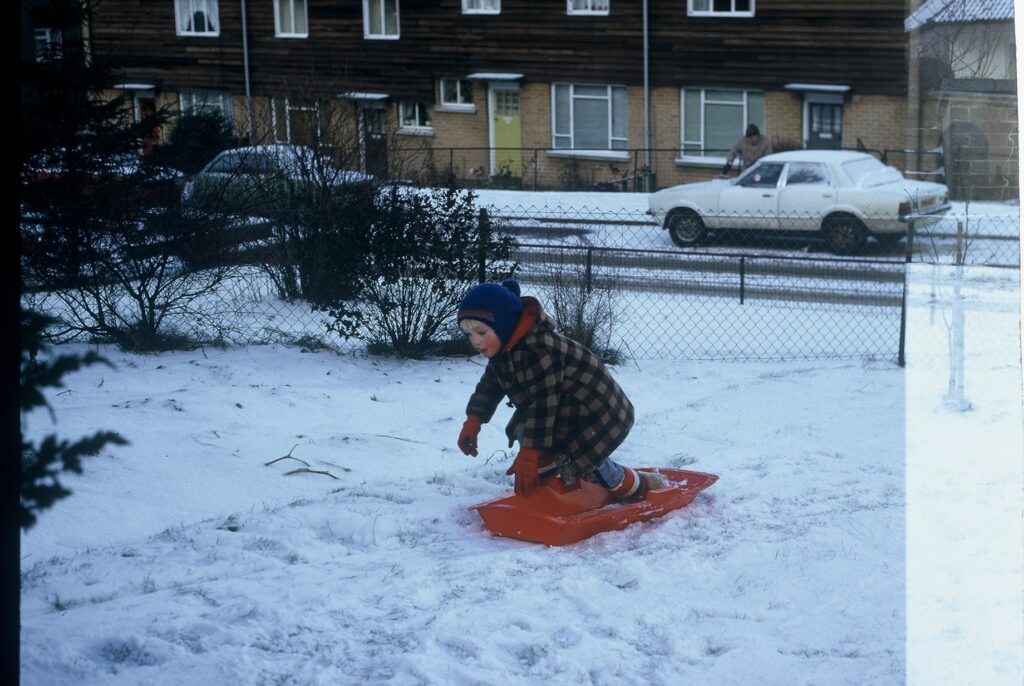
A side-effect of these formative experiences is that I grew into an adult who strongly differentiated between two distinct classes of activities:
- Things I was good at, either because of talent or because I’d thoroughly studied them already. I experienced people’s admiration and respect when I practised these things, and it took little effort to stay “on top” of these fields, and
- Things I was bad at, because I didn’t have a natural aptitude and hadn’t yet put the time in to learning them. We don’t often give adults external reinforcement for “trying hard”, and I’d become somewhat addicted to being seen as awesome… so I shied away from things I was “bad at”.
The net result: I missed out on opportunities to learn new things, simply because I didn’t want to be seen as going through the “amateur” phase. In hindsight, that’s really disappointing! And this “I’m bad at (new) things” attitude definitely fed into the imposter syndrome I felt when I first started at Automattic.
Being Better
Leaving the Bodleian after 8½ years might have helped stimulate a change in me. I’d carved out a role for myself defined by the fields I knew best; advancing my career would require that I could learn new things. But beyond that, I benefited from my new employer whose “creed culture” strongly promotes continuous learning (I’ve vlogged about this before), and from my coach who’s been great at encouraging me towards a growth mindset.
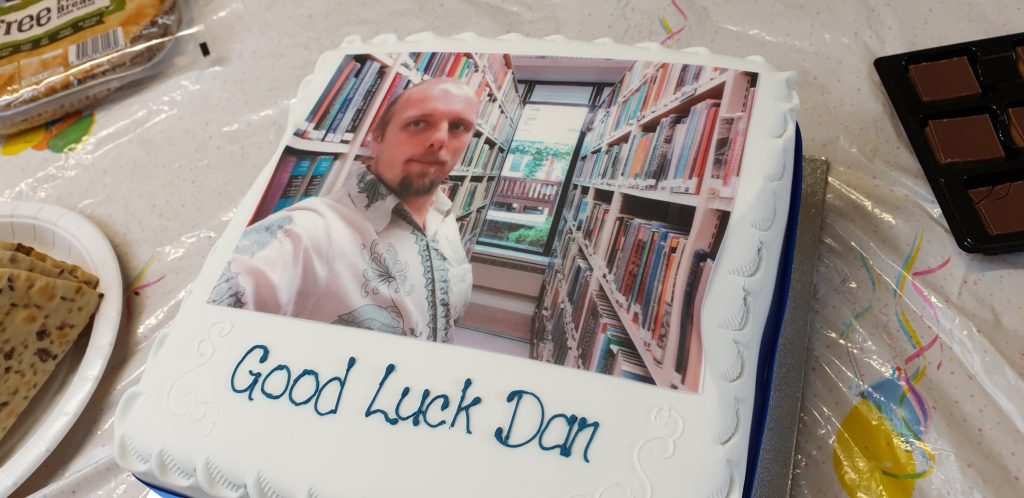
But perhaps the biggest stimulus to remind me to keep actively learning, even (especially?) when it’s hard, might have been the pandemic. Going slightly crazy with cabin fever during the second lockdown, I decided to try and teach myself how to play the piano. Turns out I wasn’t alone, as I’ve mentioned before: the pandemic did strange things to us all.
I have no real experience of music; I didn’t even get to play recorder in primary school. And I’ve certainly got no talent for it (I can hear well enough to tell how awful my singing is, but that’s more a curse than a blessing). Also, every single beginners’ book and video course I looked at starts from the assumption that you’re going to want to “feel” your way into it, and that just didn’t sit well with the way my brain works.
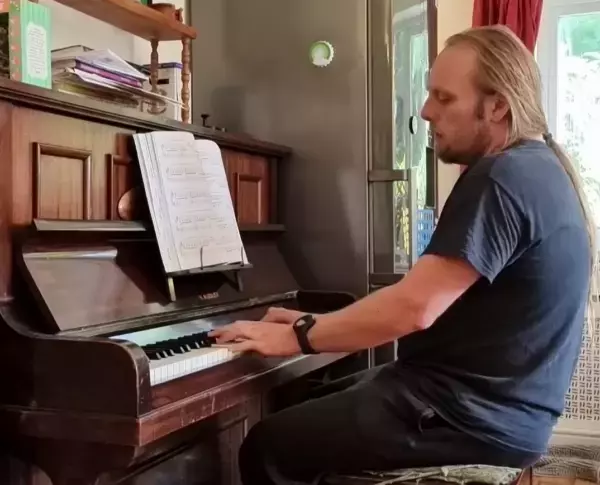
I wanted a theoretical background before I even sat down at a keyboard, so I took a free online course in music theory. Then I started working through a “beginners’ piano” book we got for the kids. Then I graduated to “first 50 Disney songs”, because I know how virtually all of them sound well enough that I’d be able to hear where I was going wrong. Since then, I’ve started gradually making my way through a transcription of Einaudi’s Islands. Feeling like I’d got a good handle on what I was supposed to be doing, I then took inspiration from a book JTA gave me and started trying to improvise.
Most days, I get no more than about 10 minutes on the piano. But little by little, day by day, that’s enough to learn. Nowadays even my inner critic perfectionist can
tolerate hearing myself play. And while I know that I’ll probably never be as good as, say, the average 8-year-old on YouTube, I’m content in my limited capacity.
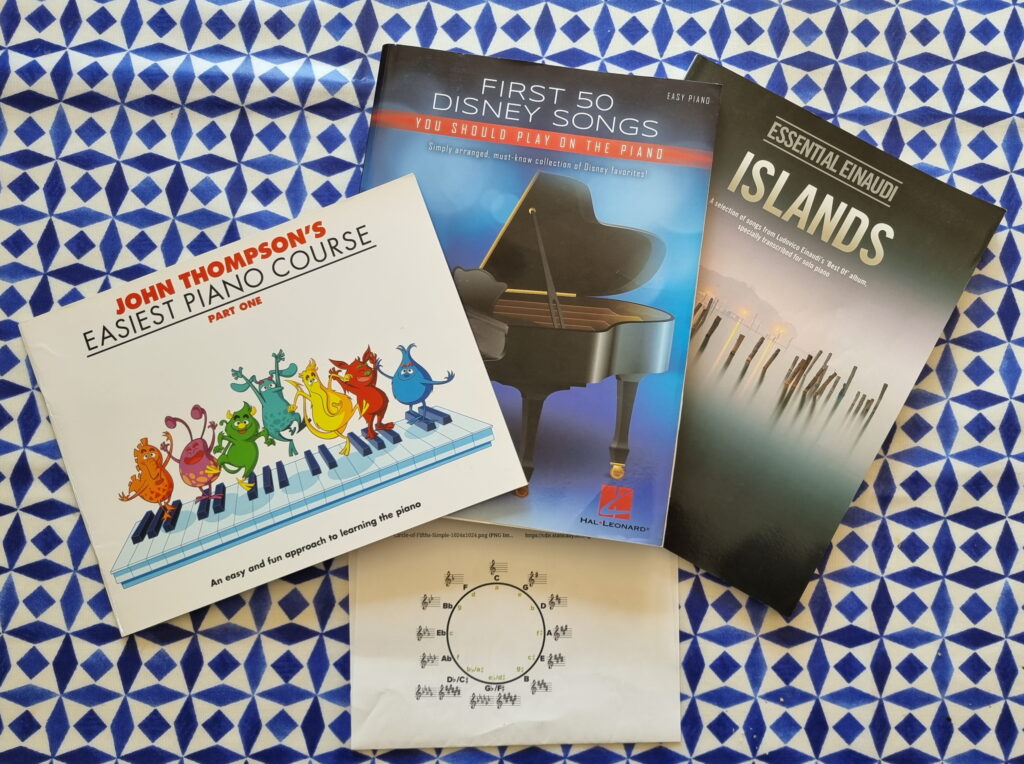
If I’m trying to cultivate my wonder syndrome, I need to stay alert for “things I’m bad at” that I could conceivably be better at if I were just brave enough to try to learn. I’m now proudly an “embarrassingly amateur” pianist, which I’m at-long-last growing to see as better than a being non-pianist.
Off the back of that experience, I’m going to try to spend more time doing things that I’m bad at. And I’d encourage you to do the same.
Wonderful to know you and enjoyed the way you explained how to get better at bad things. We have had some similar background and I could relate myself to most of what you said. Keep vlogging ! 😀